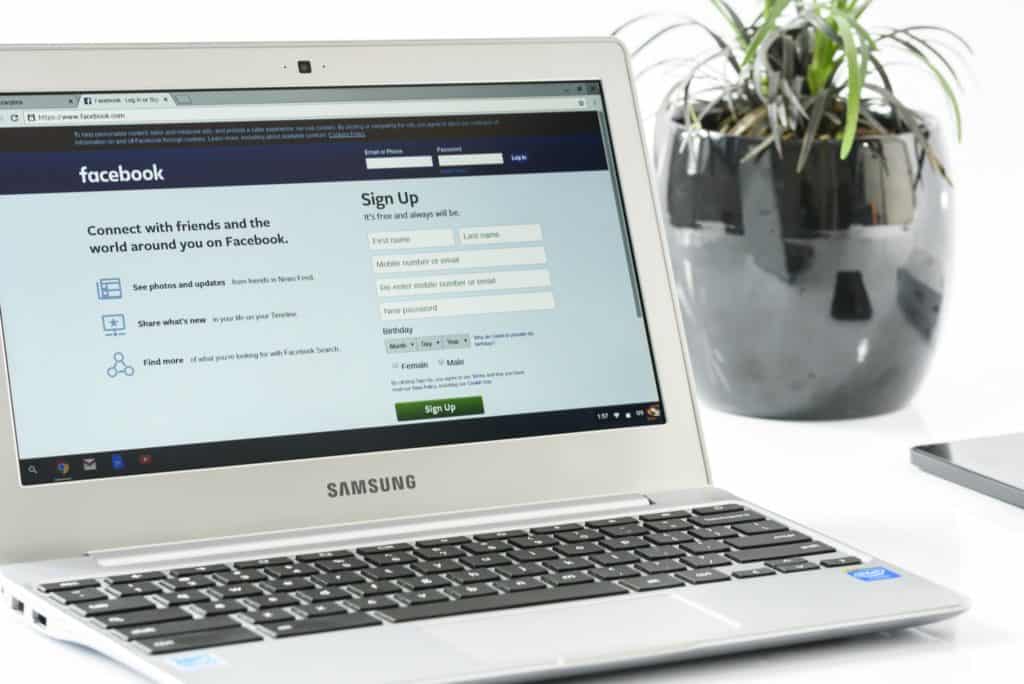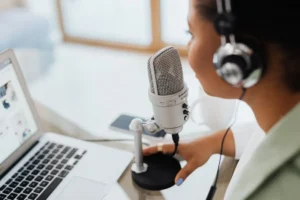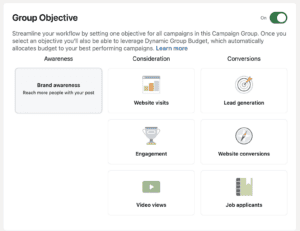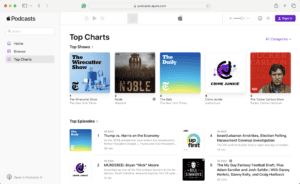Podcast listeners don’t want to be just listeners, they want to feel like they’re part of something. They don’t want to just watch you grow, they want to grow with you. This is why Facebook groups provide a unique access point to make your audience feel like they’re part of something larger than just listening to a podcast. They make connections with fellow fans and the show’s hosts, consuming all of your content and ultimately spending money with your business.
You can turn casual listeners into devoted customers who look forward to every episode and help grow your brand by sharing it with their friends. Podcast Facebook groups can help validate your ideas through valuable feedback and insights to make your podcast (and business) better. The group gives you an opportunity to learn about your customers in a way that also makes your customers feel valued. It’s win-win.
While podcasts are inherently a one-way conversation, starting a podcast Facebook group is the perfect solution to create a space where everyone can interact and chat. Ahead we detail how to build your own community to jumpstart this engagement.
How To Build Your Community Using Podcast Facebook Groups
Before you start your group, understand a couple things:
First, they take time. Engaged Facebook groups don’t spring up immediately. In the beginning, you’ll feel like you’re posting for no one, even if you regularly promote the group to your audience. It could take months or a year before you start to get anything back from your efforts. It’s smart to open your podcast Facebook group around the same time you launch your podcast so you can build them simultaneously.
Second, people’s attention spans are limited. If you go days or weeks without engaging them, they could move on to something else and forget about you entirely. You have to commit yourself to your podcast Facebook group or everyone will assume it’s not worth their time.
So how do you build a great community around your podcast?
1. Craft a clear vision
Before open your group, it’s important to understand one thing: podcast Facebook groups require a clear vision. Without a vision, the group feel disjointed and purposeless, without any substance to build a community around.
Your vision, simply, is what you expect your Facebook group to do. Do you want to educate fans? Inspire them to take a particular step? Get a better understanding of their needs and problems?
The topic should align with the same problem your podcast addresses. For example, we help podcast creators host their podcasts so our Facebook group, Podcast Hackers, is a place for podcasters to share ideas and get feedback about their shows.
I know your main goal is to entice people to listen to your podcast episodes and drive them to your website, but you can’t do that unless you provide them with value. So your first step is to figure out how you’ll create value for your fans.
2. Engage your audience
Podcast Facebook groups work best when you and your community interact regularly.
End posts with a question or include a call-to-action that spurs additional conversation. Questions should inspire people to like and comment within the post, compelling them to add their voice to the conversation. When a post sees a lot of engagement, Facebook’s algorithm makes it more likely other people will see the post.
Facebook uses thousands of factors to determine who sees which post, but they can be broken down into six groups:

When you post, include videos, images, and links because Facebook’s algorithm favors them as opposed to text posts.
Comment, like, and engage with every post your members create. This is the space to validate people by acknowledging their thoughts, supporting their content, and discussing their ideas.
As you post, make sure to monitor your group’s analytics dashboard to learn which posts perform and well and which don’t. (Only available to groups with 250+ members.)
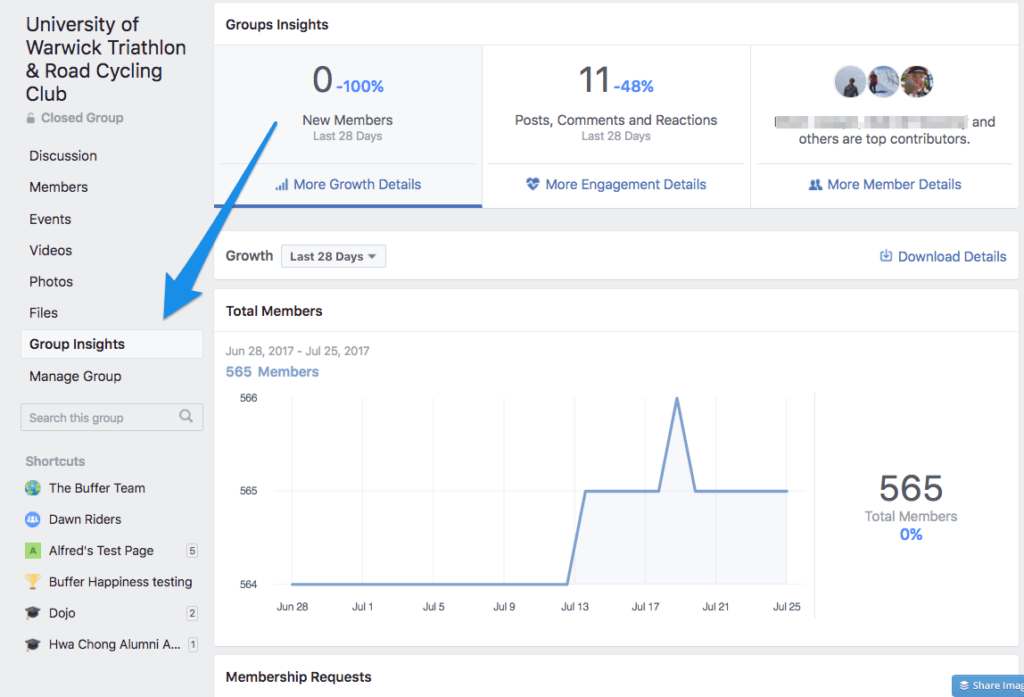
3. Empower your active members
Some of your community members will participate more than others, commenting more frequently and posting their own content.
These types of users are extremely valuable because they engage your community for you. They may have some goals of their own, but as long as they add value to the community, there’s no reason to stop them. In fact, you can encourage this behavior by acknowledging their content and comments and thanking them for their willingness to share.
4. Share other people’s content
Naturally, you’ll want to promote your own podcast episodes, but your fans likely consume content from other sources as well. Don’t be afraid to promote other people’s work if it adds value to your audience.
If you’re savvy, you’ll arrange partnerships with other content creators (could be writers or video creators, not just podcasters) with audiences that match yours. Agree to share one another’s new content whenever it’s published.
5. Offer something different
Your podcast episodes are great inspiration for your podcast Facebook group content, but it’s also important to provide a different experience. If your Facebook group posts come straight out of your podcast episodes, why would someone follow both? Instead try posts with a different spin. Some common examples include:
- Deep dive into a topic you lightly mentioned in your podcast
- Invite your podcast guest into your Facebook group for a community Q&A
- Ask a question to your podcast audience and discuss it on Facebook
A little overlap is good, but make sure you deliver unique value in both mediums.
6. Send listeners to your Facebook group
Encourage your listeners to connect with your podcast Facebook groups by mentioning them organically throughout your podcast. For instance, you might quote a Facebook group member’s comment or say something like, “We had a great discussion about this on Facebook last week and the consensus was…”
You should also push listeners to your Facebook group deliberately by adding specific calls-to-action. For example, at the end of your podcast you might say, “Thanks for listening. Join our Facebook group to talk about today’s episode.”
7. Create a welcoming atmosphere
Podcast Facebook groups have the same vulnerabilities of any online community: toxic people.The last thing you want is for your Facebook group to devolve into arguments. You want your members to feel comfortable communicating with one another, even when their opinions differ. Some common community management techniques include
- Swiftly banning people who start fights or exhibit toxic behavior.
- Reminding people that opinions and experiences differ.
- Not ridiculing people for asking questions or expressing ignorance.
- Answering remedial questions (even or the thousandth time).
It helps to establish some rules for your community and post them publicly, like this:
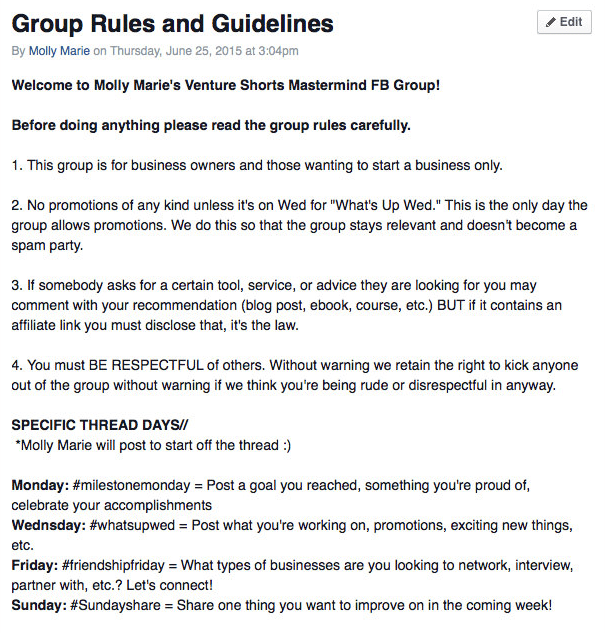
If you keep your Facebook group a positive, welcoming place, your members will stick around.
Focus On Value
Here’s the last piece of advice we’ll leave you with: If you don’t provide value, the members of your podcast Facebook groups. They need to get something from your group. The best community leaders are in a constant state of giving – information, advice, tools, etc.
If you take time and care to thoughtfully build your community, you’ll grow your fan base, build new relationships, gain knowledge about your audience, and even pick up ideas for new podcast episodes.
